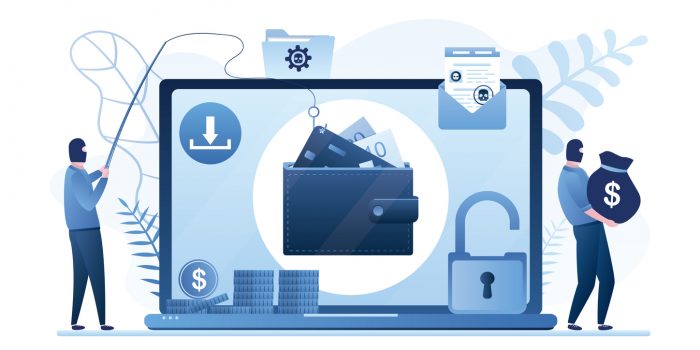Stimulus Check Scams – Three Red Flags! - DJ Wilson - AMAC.us

Scammers are crooks who commit or participate in fraudulent schemes to steal money or identities. They are increasingly on the prowl now as the third round of Economic Impact Payments, sometimes called stimulus checks, are being released by the government to certain individuals who qualify based on their income. To find out if the IRS is sending you a payment, visit Get My Payment on IRS.gov. If you are eligible, payment will come by mail or direct deposit based on data the agency has in its system.
The Department of Justice warns that there are newer scams designed to take advantage of people receiving stimulus checks. Thus, all must remain on high alert for scams. Here are three red flags:
- Red Flag #1 – being asked to click on a computer link to verify information or to get payment related to the stimulus check– One popular scheme aimed at getting people’s stimulus money involves scammers contacting individuals by computer and asking them to verify information to get their payments. This may come in the form of an email, with the scammer possibly posing as a government agency and requesting information. Beware, you will never be asked to click on links, nor will you be asked to confirm information to get your stimulus check. Do not click on website links as they can put malware onto your computer. Malware is software that is specifically designed to disrupt, damage, or gain unauthorized access to a computer system. Remember, you do not need to sign up or confirm information for a stimulus check, and there is no fee to get stimulus checks.
- Red Flag #2 – being asked to purchase and send gift cards or cryptocurrencies such as bitcoins – In this scheme, scammers tell people that there is a fee to get their stimulus check. They will likely be instructed to pay the fee by gift card or via cryptocurrency, a medium of exchange that is digital, encrypted, and decentralized. The scammers know that once you send money in these difficult or impossible-to-trace forms, there is no way for you to get your money back. They may also ask for or demand personal information, such as your bank account or social security numbers. This is a scam. People need to stay on guard for random scam telephone calls, emails, texts, and websites that request personal or banking information.The IRS will not call you, text you, or email you about your stimulus check or ask you to divulge your bank or personal information for purposes of receiving a stimulus check.
- Red Flag #3 – getting a payment that looks real but has the word stimulus on it – Cnet.com explains one good way to spot a scam, “The IRS calls the economic impact payment by its official name, where scammers are more likely to say ‘stimulus check’ or “stimulus payment” instead.” If you’re getting payment, track it to known when it should arrive. Beware of fake checks that are made to look like real government-issued checks. Note that it’s sometimes hard for banks to tell if checks are legitimate, too. However, here is how the fake check scam works: Should you deposit a fake check into your account, the scammer, often pretending to be with a government agency, will tell you that you have been overpaid. Next, they will ask you to return some money. When the bank makes the money available to you, you issue a “refund” to the scammer. Then, the bank realizes the check is fake, and you owe the bank back the money. The financial loss can be devastating for people relying on the stimulus checks to see them through hardships.
The best thing you can do is stay aware of these tricks to avoid becoming a victim. It’s also important to spread the news and educate others. Remember, it is our universal duty to help protect others. Warn friends, relatives, and neighbors to be on the watch for these scams to avoid being cheated. If fraud should occur, targets of scams are strongly encouraged to report it immediately so that the scam can be investigated and the scammer stopped.
